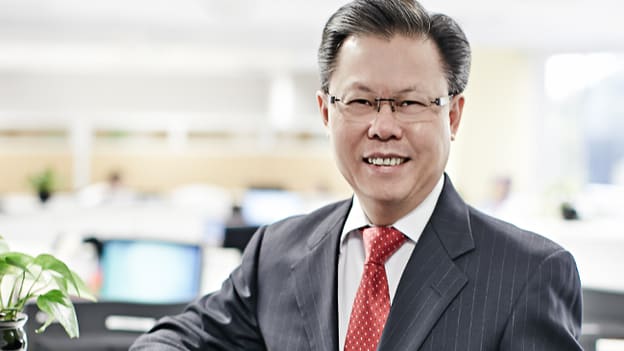COVID-19 has forced everyone to rethink diversity and inclusion: Andreas Sungaimin

Andreas focuses on talent acquisition and management, learning and development, service culture, employee engagement, as well as compensation and benefits at Pan Pacific Hotels Group. He has over 30 years of human resources experience in the hospitality industry as well as from private and public sector organizations.
COVID-19 has redefined how and where work gets done. How are you gearing up to rebound and come stronger on the other side?
The pandemic has accelerated the transformation of the hospitality industry. To cater to the changing business landscape and demands, there is a need to rethink traditional structures and roles within an organization, and these changes are set to put the industry ahead in the new normal. They will work in line with the overall digital and technology innovation of the industry, consumers’ demand, and job enlargement to refine resource capabilities.
At Pan Pacific Hotels Group, we have commenced our workforce transformation last year, as we systematically worked out job redesign and clustering arrangements to ensure that our associates are placed in capacities with the relevant skill set and work scope to prepare them for the long run, and also for meaningful career development. These efforts extend to all functions including operations, engineering, F&B, procurement, sales, and marketing, with the appropriate training, reskilling and upskilling opportunities.
What have you learned from this crisis in terms of talent management and the role of technology?
The Group has harnessed technology as an enabler for talent growth during the pandemic, leveraging on technology platforms for employee engagement and training. To allow our associates to future-proof their careers by being technologically savvy and prepare for the advancement of workplace technology, relevant courses are offered via our e-learning academy, U@PPHG. These courses incorporate knowledge and know-how of technology and digital platforms to allow the associates to manage future skills at their workplaces such as managing back-of-house systems, digital concierges, keyless check-in, handling of RFID equipment, and many more.
The crisis has exposed how some companies view diversity and inclusion. How do you see the overall scenario?
The current crisis has forced everyone to rethink how we manage our inclusive hiring program as an organization. Fundamentally, we need to develop a structured framework to guide how we hire and train. We believe that we can stay resilient against a crisis if we possess a strong inclusive employment policy. In the face of the pandemic, the Group has been establishing strong partnerships with schools and agencies to secure internship opportunities and develop training programs to ensure that our inclusive hiring program is sufficiently robust such that we are able to avoid any shedding of jobs for our inclusive hires.
Our strong inclusive hiring policy is fundamental as we look to retaining the right talents for the right jobs, with inclusion and diversity as our goal. As an organization with a presence around the world, we encourage the development of our local talents where we operate, maximizing their potential to advance further.
What, according to you, are the biggest challenges organizations face when educating employees on diversity and inclusion? How can the challenges be surmounted?
Diversity in a workplace brings about global work culture, binding people of different genders, races, ethnicities, ages, religions, and social statuses. Hence, it is about overcoming the mindset about not being able to embrace differences and coming together as a family. Many are too encumbered by existing operations to explore the changes that need to be made to nurture an inclusive workforce. At Pan Pacific Hotels Group, we celebrate the different cultures of this vibrant workforce that we have, placing a clear emphasis on team spirit and being mindful of cultural sensitivities.
How can boards ingrain inclusion into their organizational strategy? How are you doing it?
As part of Pan Pacific Hotels Group’s diversity and inclusion strategy, the focus we are taking is on our disability-inclusive hiring efforts. We started by taking small steps, by first participating in job shadowing initiatives, then internships, before we started to look into hiring on a structured basis.
Partnership has also proven very critical in this journey. In Singapore, our community partners such as SG Enable and special education schools have provided resources where we are lacking as a corporate. They train our existing associates on working alongside persons with disabilities, and their job coaches assist with job matching, job redesign, and easing persons with disabilities into their roles.
Other than hiring persons with disabilities within our properties, we also influence our supply chain to hire inclusively. Additionally, we volunteer our expertise such as in Noodles for Good, where we collaborated with Autism Resource Centre and Central Singapore CDC by imparting our recipes and business consultancy skills, so that families with special needs individuals can operate their own noodle kiosks. As a result, three beneficiary pairs are selling Si Chuan Dou Hua Restaurant’s noodles and dumplings as a means of livelihood.
















